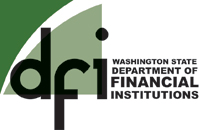From the Field - Common Examination Findings

The following are some of the common violations our exam teams in each industry found during examinations in the last quarter:
- MSB Programs
- Mortgage Originations – Mortgage Broker
- Mortgage Originations – Consumer Loan
- Mortgage Servicing
- Escrow Agent
MSB Programs
Money Transmission Volume Reports – Examiners cited increased incidents of inconsistent or inaccurate calculation of money transmission volume in regulatory reports. Licensees report volume in quarterly call reports through the NMLS, states’ annual assessment reports, and in documents prepared during examinations. Examiners noted inconsistencies between these reports as well as licensees’ misunderstanding of reportable volume under Washington licensure as defined in the Uniform Money Services Act (Act) under RCW 19.230.010(18). Licensees must consider how the definition of money transmission under the Act applies to each licensee’s products and services and implement procedures to calculate and report the correct volumes accordingly. Failure to calculate transmission volume accurately may result in related regulatory violations including, but not limited to, inadequate surety bonding, insufficient tangible net worth, and under-payment of the Washington annual assessment.
Suspicious Activity Investigations and Reporting – Examiners cited increased incidents of licensees delaying investigations and reports of suspicious activity under 31 CFR 1022.320. Federal law requires that financial institutions monitor money services activity to timely identify and report suspicious activity to law enforcement. Pandemic related impacts to licensees’ business operations, and changes in suspicious activity typologies, contributed to the delays by licensees in monitoring, investigations, and reporting. Timely and accurate suspicious activity reporting is vital to the health and soundness of the U.S. financial system. Licensees must allocate sufficient resources to ensure timely identification and reporting of suspicious activity.
Permissible Investments – Examiners cited continued failures by licensees to prepare monthly reports about permissible investments (PI). Licensees must prepare monthly reports about PI that include the calculation of average daily transmission liability (ADTL) as required under RCW 19.230.170(c) and WAC 208-690-085. Licensees must prepare and maintain monthly PI reports in order to demonstrate adequate PI as required under RCW 19.230.200 and RCW 19.230.210. The Department provides model PI and ADTL forms on the agency’s website to assist licensees. Note: Washington licensees must prepare and maintain the monthly PI reports in addition to the quarterly PI reports filed through the NMLS Money Services Business Call Reports.
Mortgage Originations – Mortgage Broker
The most common violations during Q2 2021 are:
- Failure to file quarterly Mortgage Call Reports (MCRs) on time
- Failure to file accurate MCRs
- Failure to develop and implement an adequate Anti-Money Laundering program
- Advertising using the phrases “best” and “lowest” to describe rates, fees, or programs
- Advertising “No Closing Costs” or something for “Free”
- Failure to provide updated lock agreements when a change to the lock terms occurs
- Failure to include a link to the company’s NMLS consumer access web site on all internet advertisements. The requirement to include the link on all internet advertisements was new as of September 2019.
A couple of less common violations are failure to update company and individual disclosure questions in NMLS within ten business days of an event requiring disclosure (WAC 208-660-400), and using unlicensed third-party processors (WAC 208-660-300(13)).
The Department recently posted an AML Program Outline to its website. The guidance brings together information from FinCEN’s anti-money laundering regulations and provides a template brokers may use to develop an AML program.
Mortgage Originations – Consumer Loans
Rate Lock Agreements: Examiners continue to identify borrowers who were not provided a new rate lock agreement within the required three business days of a change to the locked interest rate. WAC 208-620-510(5) requires licensees to provide a new rate lock agreement within three business days of a change to the locked interest rate. Changes to a locked interest rate can occur only if the borrower requests the change or for valid reasons such as changes in loan to value, credit scores, or other loan factors directly affecting pricing. Lock extensions and relocks are also valid reasons for changes to a previously locked interest rate.
Using a DBA: Under WAC 208-620-420 licensees may apply to the Department to add a trade name or DBA to their main license name. Once approved by the Department, licensees must use the trade name in conjunction with their main license name or main license number. Landing pages of electronic advertisements must include both the licensee’s main license name and main license number as required by WAC 208-620-622(1). The DBA must be registered with the Department through the NMLS. Examiners regularly identify trade names that have not be appropriately submitted to the Department for approval.
Mortgage Loan Servicing
The servicing team completed two examinations in April 2021 before joining a Multi-State Mortgage Committee joint examination that is still in process. One of the examinations had no findings, and the other had a few miscellaneous violations and the common violation of failure to apply a payment properly. There are multiple reasons payments aren’t applied properly, including clerical error, failure to follow borrower instructions for non-standard payment amounts, and improper calculations on adjustable rate mortgage rate changes.
The servicing industry is in the midst of winding down CARES Act and other forbearance programs. Overall active forbearances are declining from just under five million in May 2020 to about two million at the end of June 2021 (per Black Knight). The Department thanks the industry for its continued diligence as it works with borrowers to keep accounts from foreclosure.
Escrow Agent
Of the nine examinations in the quarter, seven had no violations, another had only one violation, and the remaining examination had five violations. During an examination, the Department provides best practices recommendations called Internal Routine and Control Exceptions. The two most common are inaccurate closing disclosures, where the lender prepared document shows escrow fees going to the title company or title company fees going to the escrow agent, and inadequate information security program documentation. If an agent gets an inaccurate closing disclosure they should notify the lender before closing so an accurate disclosure is completed before closing. Under WAC 208-680-532 and the federal Safeguards Rule, a coordinator must be named in the information security program and annual reviews of the programs, including records of the annual reviews must be conducted. The Department recommends assigning a version number to the program and keeping a log of the versions and annual reviews. A repeat finding of inadequate information security documentation may rise to the level of a violation.
- Message from Cindy Fazio
- DFI Mortgage Assistance Team Expands
- NMLS Closure July 22-26
- From the Field - Common Exam Findings
- Who Needs to be Licensed as a Manager and Have a Supervisory Plan?
- Cybersecurity and Ransomware Threats to Nondepository Financial Institutions
- Rulemaking Update
- Mortgage Updates
- Check Casher and Seller Updates
- Escrow Updates
- Money Services Updates
